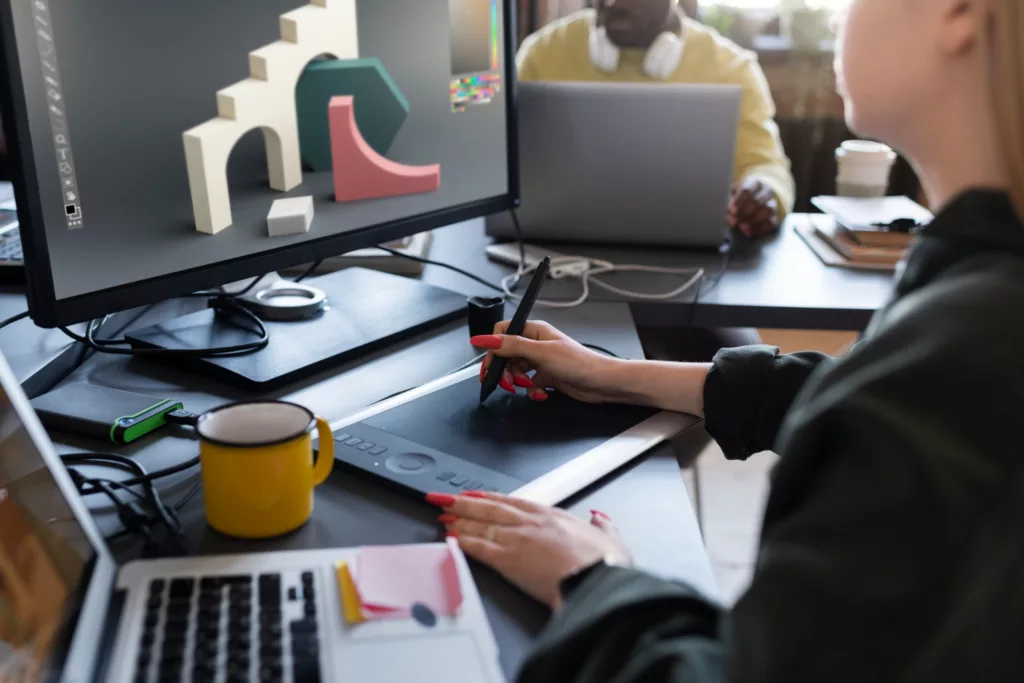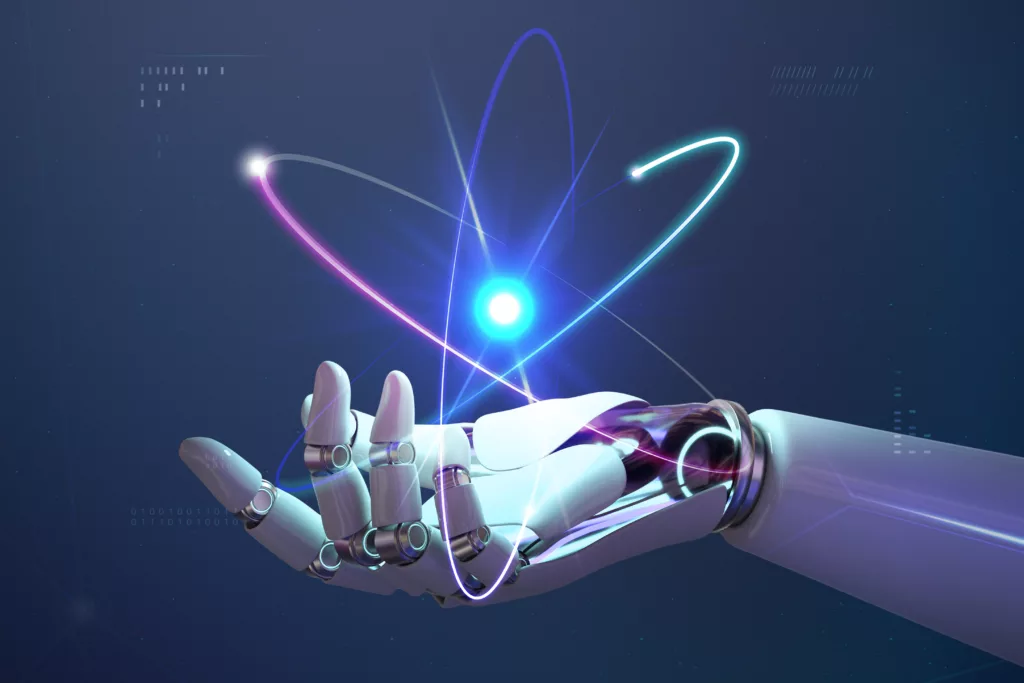Graphic design has undergone a transformative revolution with the integration of Artificial Intelligence (AI) technologies. AI-powered tools and applications have not only enhanced the creativity of graphic designers but also significantly improved their efficiency. In this article, we will explore the ways AI is revolutionizing graphic design, empowering designers to create stunning visuals and streamline their design processes like never before.
Introduction
Graphic design has always been a domain of creative expression and visual storytelling. With the advent of AI, designers now have access to a plethora of tools that augment their creative abilities and streamline repetitive tasks. AI-driven automation and intelligent algorithms have revolutionized the graphic design industry, enabling designers to focus on unleashing their creativity while leaving time-consuming tasks to AI-powered tools.
AI-generated Designs and Concepts

Logo Design
AI-powered logo generators can analyze a brand’s identity, mission, and aesthetic preferences to generate a wide array of logo concepts. Designers can choose from these generated concepts as a starting point for further customization and refinement.
– Branding Materials
AI can create branding materials such as business cards, letterheads, and social media graphics based on a company’s logo and design guidelines. This automated process ensures consistency across all branding materials.
Automated Layouts and Composition
AI can automate the layout design process, intelligently arranging elements based on design principles and user preferences. Designers can save time by using AI-powered tools to create balanced and visually appealing compositions.
Image Editing and Enhancement
– Photo Retouching
AI-powered photo editing tools can automatically retouch images, remove blemishes, adjust lighting, and enhance colors. This saves designers valuable time in the post-processing phase.
– Image Upscaling
AI algorithms can upscale images without losing quality, making it easier for designers to use images of various resolutions in their projects.
Efficient Asset Management
AI-driven asset management systems can organize and categorize design assets such as fonts, images, and templates. This simplifies the search for specific assets and ensures easy access for future projects.
Future Possibilities and Challenges

As AI continues to evolve, the possibilities for graphic design are boundless. From advanced creative assistance to predictive design trends, AI will play an increasingly vital role in shaping the future of graphic design. However, challenges related to data privacy, ethical considerations, and maintaining the human touch in design will need to be addressed.
Conclusion
AI has revolutionized the field of graphic design by enhancing creativity and improving efficiency. Designers can now harness the power of AI to generate design concepts, automate layout processes, edit and enhance images, and manage design assets seamlessly. The integration of AI in graphic design does not replace human creativity but rather complements it, allowing designers to focus on what they do best – crafting visually stunning and compelling designs.
As AI technology advances, graphic designers can look forward to even more innovative tools and applications that will continue to redefine the graphic design landscape, unleashing endless creative possibilities.
Frequently Asked Questions
Answer: No, AI serves as a tool to augment and empower designers, not replace them. The role of graphic designers remains vital in bringing human creativity and understanding to design projects.
Answer: Yes, AI can analyze vast amounts of data and user behavior to predict emerging design trends, enabling designers to stay ahead of the curve.
Answer: While AI can generate design concepts based on input and analysis, the true creativity and originality still stem from human designers who bring their unique perspectives and ideas.
Answer: AI-powered photo editing tools can automatically retouch images, remove blemishes, adjust lighting, and enhance colors, saving designers valuable time in the post-processing phase.
Answer: No, AI cannot replace the unique creativity and understanding that human designers bring to logo design. AI-generated concepts can serve as a starting point for designers to further customize and refine.